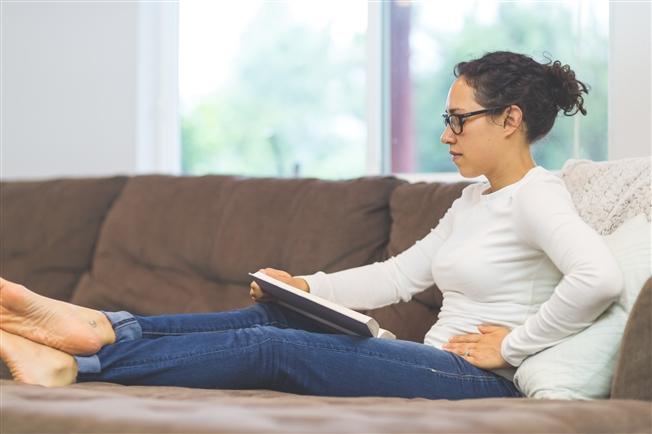Get relief from fibroids

If you've been told that you have fibroids, it may help to know these are extremely common in women of all ages. Here are symptoms to watch out for and how to get the best pain relief for fibroids, according to Jordan Klebanoff, MD, a fellowship-trained, minimally invasive gynecologic surgeon at Lankenau Medical Center.
If you've been told that you have fibroids, it may help to know these are extremely common in women of all ages. Fibroids are muscular tumors that are a part of the uterus, which are almost always benign (noncancerous).
Over the course of a woman's lifetime, 70 percent of white women and 90 percent of African American women may develop fibroids. After menopause, these hormonally sensitive tumors usually shrink, but will not disappear.
"Having fibroids doesn't necessarily mean that you must choose some form of medical or surgical treatment. It is only when those fibroids cause unwanted symptoms that treatment is indicated," says Jordan Klebanoff, MD, a fellowship-trained, minimally invasive gynecologic surgeon at Lankenau Medical Center, part of Main Line Health. Dr. Klebanoff helps patients find the best pain relief for fibroids. "Some people with fibroids never experience any problems. However, even the smallest fibroids can be associated with undesirable symptoms or sometimes infertility in certain cases."
Some people develop uterine fibroid symptoms such as:
- Heavy or irregular menstrual bleeding
- Painful cramping during menstrual cycles
- Feeling of fullness in the lower belly
- Pain during sex
- Low back pain
- Frequent urination
- Difficulty getting pregnant
- Problems during pregnancy
What fibroid treatment options provide the best pain relief for fibroids?
Non-narcotic pain relievers and hormonal birth control are two medications that may be prescribed for fibroids. If your fibroids are causing problems, several types of treatment are available. Your doctor may prescribe medication, like the following:
- Pain relievers (such as ibuprofen or acetaminophen) to ease mild pain
- Nonhormonal medications to reduce bleeding
- Hormonal birth control (such as certain birth control pills or the Mirena IUD) to reduce heavy bleeding during periods
- Iron supplements to prevent anemia caused by heavy periods
Some cases require gonadotropin-releasing hormone agonists/antagonists (such as Lupron or Oriahnn) to treat anemia or shrink fibroids prior to surgery.
Sometimes fibroid-related symptoms require surgery. Your doctor may recommend a procedure such as:
- Myomectomy to remove fibroids while leaving the rest of the uterus intact—a good choice for women who want to become pregnant later
- Hysterectomy to remove the entire uterus and fibroids (usually leaving the ovaries)
- Endometrial ablation to destroy the lining of the uterus, which reduces heavy bleeding during periods
- Uterine fibroid embolization to block the blood supply to fibroids, which causes them to shrink and reduces menstrual bleeding
"The choice of treatment often depends on the size, location and number of fibroids as well as whether you want to have children in the future," says Klebanoff.
Your doctor can help you make an informed decision about your treatment depending on these and other factors.
Next steps:
Make an appointment with Joseph M. Gobern, MD
Learn more about the gynecology care at Main Line Health
Do fibroids cause weight gain?
 Content you want, delivered to your inbox
Content you want, delivered to your inbox
Want to get the latest health and wellness articles delivered right to your inbox?
Subscribe to the Well Ahead Newsletter.
